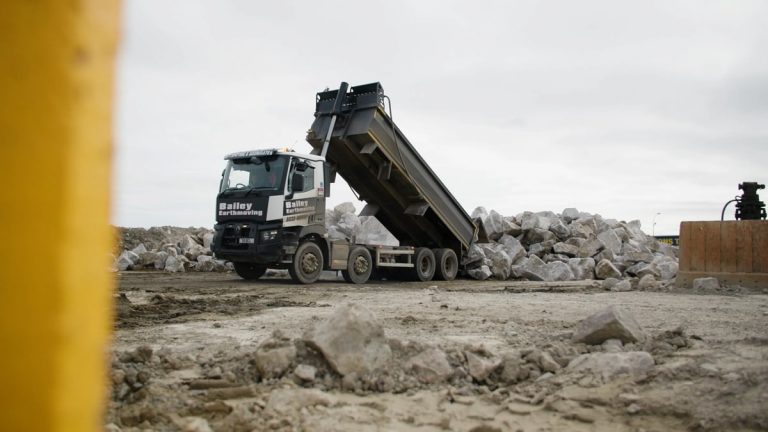Stafforce Training supports North Lincolnshire Women’s Aid volunteers with life-saving first aid skills
Partner promotion for Lupton Fawcett private client specialist
Libertine Holdings enters into bridging loan agreement
Libertine Holdings, a Sheffield-based developer of Linear Generator technology, has entered into a bridging loan agreement with Reliant FZCO to support the finalisation of new investment.
It follows news earlier this week that Libertine Holdings was set to engage an insolvency practitioner following a failure to secure short-term funding while it waited to receive a £2m investment from investors in India and the UAE (Corporate International Financial Services Ltd and Reliant FZCO).Under the terms of the bridging loan agreement, Reliant FZCO will provide two tranches of £110,000. The first tranche is expected to be received on 16 August and the second tranche is expected to be received on 14 September, to support the working capital requirements of the business.
It is intended that the conditional subscription agreement entered into between the company and Corporate International Financial Services Limited will be terminated. Instead it is intended that Reliant FZCO and the company will vary the terms of their original conditional subscription agreement to increase Reliant FZCO’s subscription from £1m to £2m.Libertine Holdings noted that given the company’s financial situation, and the timing uncertainty around the receipt of funds, the Board still plans to engage an insolvency practitioner to seek advice on the appropriate next steps.
Trading in the company’s ordinary shares on AIM continues to be suspended.
Yorkshire & Humber Institute of Technology gets government backing for further 10 years
Revised Harrogate Station Gateway plans unveiled
Evelyn Partners to acquire Haines Watts’ Leeds, Manchester and Newcastle offices
The acquisition will bring five partners, nine directors, and over 150 colleagues from Haines Watts into Evelyn Partners’ Professional Services business, significantly strengthening its presence in the north of England.
The deal represents the sixth acquisition for Evelyn Partners’ Professional Services business since the start of 2023, as it seeks to augment its strong organic growth and broaden its geographic footprint by adding high quality firms with complementary expertise.
Andrew Wilkes, Chief Professional Services Director of Evelyn Partners, said: “We are delighted to welcome the team and clients of these three former Haines Watts offices to Evelyn Partners.
“The team, led by Donna Bulmer, are high-quality professionals with a long-standing track record of giving clients the best possible tax advice and accountancy solutions. Their approach of providing a fully supportive, personal service and building long-standing relationships with clients is very much in line with our culture at Evelyn Partners.
“This acquisition continues our strategy of expanding the number of business and private clients we provide our professional services to in the north of England.”
Donna Bulmer, Managing Partner of Haines Watts, said: “This is an exciting time for our clients and our team as we join forces with our new colleagues at Evelyn Partners. We see a great cultural fit that will ensure we continue to deliver high service levels to our clients, whilst creating fantastic opportunities for our team.”
Aggregate Industries enhances local sea defences
Yorkshire IT company gets boost from Theo Paphitis
South Yorkshire Mayoral Combined Authority awarded £3m for Skills Bootcamps
Barnsley care group continues expansion with acquisition
Barnsley’s Optimo Care Group has acquired CFT Care Limited.
Based in Clacton, CFT Care is a supported living and specialist care provider, established in 2014 by David Thompson. The company employs approximately 230 skilled staff members who deliver essential services to around 60 younger adults with learning disabilities and autism.
CFT Care operates around 44 purpose-built supported living units across multiple sites in cluster settings, all of which will be included in the acquisition. This acquisition also includes a portfolio of supported living development sites for future expansion.
Optimo Care Group will be retaining all current CFT Care staff members, ensuring continuity of care and stability for the service users. The company also plans to further expand the team to accommodate the anticipated growth in services.
Optimo supports thousands of people across the UK with a variety of complex and specialist support needs. An acquisitive strategy and strong organic growth over the last 18 months has resulted in the Group trebling its post-pandemic revenues. The Group comprises multiple subsidiaries, employing over 1,400 people across the UK.
Optimo is now aiming to double its revenues over the next two years.
The sale was facilitated by Redwoods Dowling Kerr. Optimo was advised by Freeths LLP (Legal), Hazlewoods LLP (Financial and Tax), Knight Frank LLP and Eddisons Commercial (Property). CFT Care was advised by Ellisons LLP (Legal) and TC Group (Tax).
Ben Hales, Group Projects Director and head of M&A at Optimo, said: “I am absolutely delighted to have finalised this deal and to welcome the CFT Care team into the Optimo family. CFT Care has built and maintained an excellent reputation in the Essex area. With significant potential for continued growth through new development sites in the pipeline, we are eager to begin working with the team to drive our shared vision forward.
“I would like to thank all of our teams who have worked tirelessly around the clock to make this deal happen. We couldn’t have accomplished this without their dedication and hard work behind the scenes. Additionally, I would like to extend a personal thank you to David for his cooperation and assistance throughout this process.”
Ryan Brummitt, Managing Director for Supported Living and Specialist services at Optimo Care Group, said: “At Optimo, our focus is always on providing the highest quality of care and support for our service users. The acquisition of CFT Care allows us to extend our reach and enhance our services, ensuring more individuals receive the compassionate and personalised care they deserve.
“We are thrilled to welcome the CFT Care team and look forward to collaborating closely to make a positive impact on the lives of those we support.”












